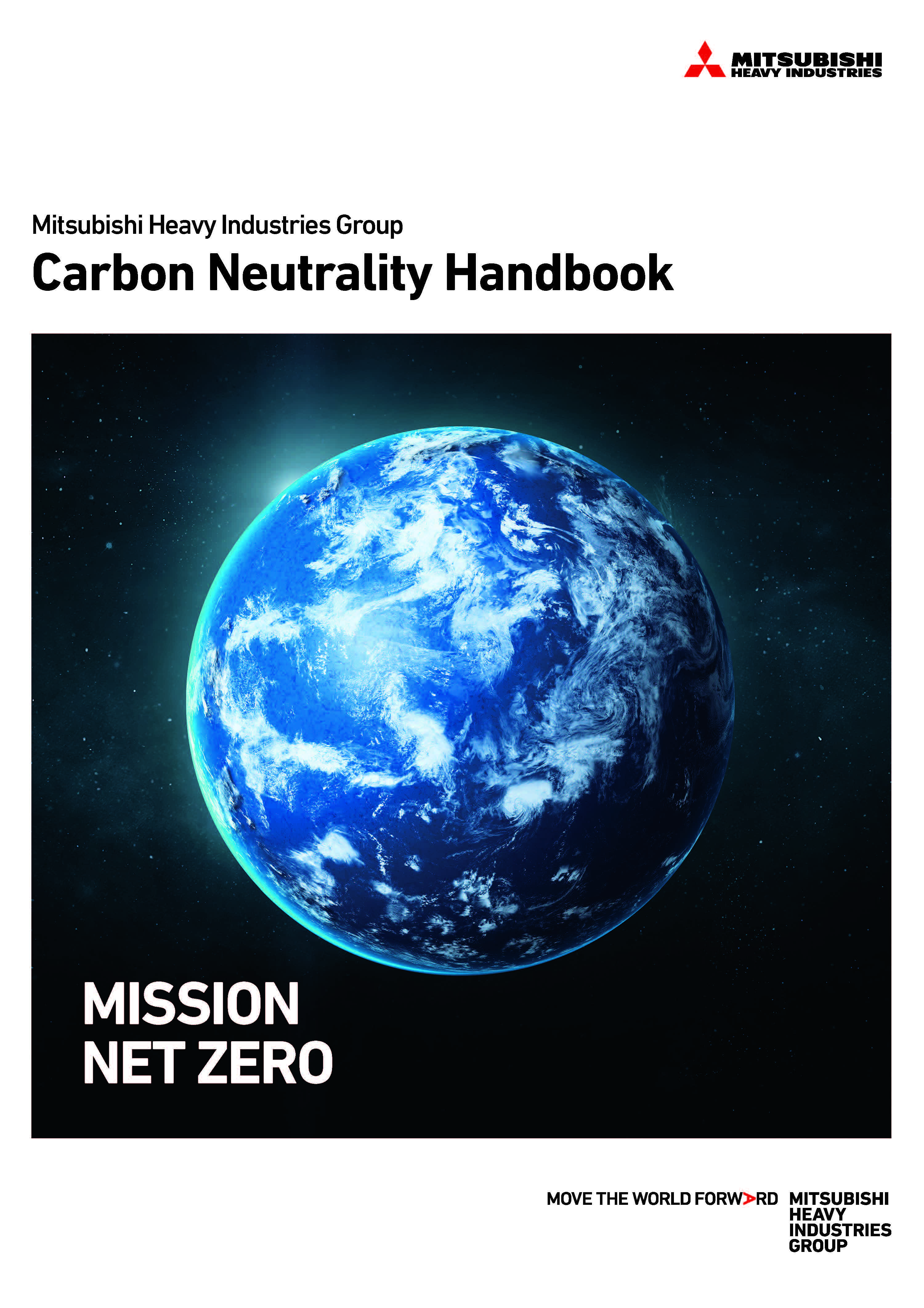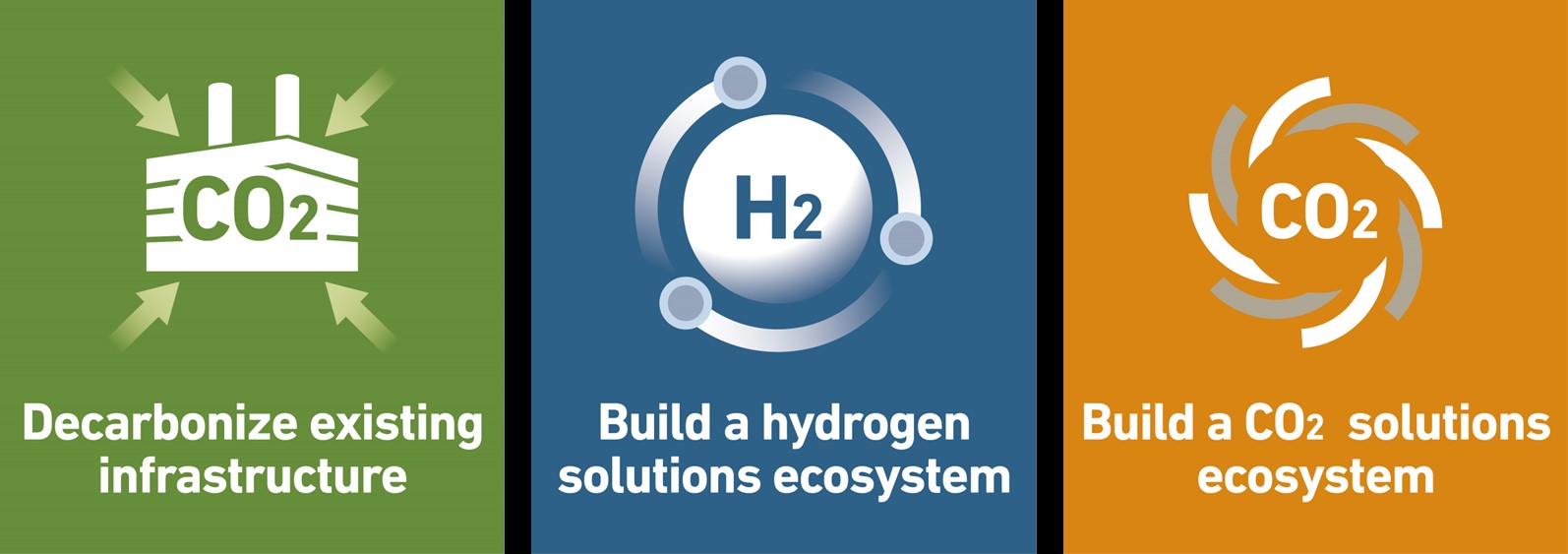2023.07.20

Mitsubishi Heavy Industries publishes a handbook covering its initiatives toward achieving carbon neutrality by 2040

In October 2021, Mitsubishi Heavy Industries (MHI) declared its “Mission Net Zero” commitment to become carbon neutral by 2040, a challenging target that is 10 years ahead of the 2050 target for carbon neutrality set by the Japanese government. Toward achieving this goal, each business division at MHI is forging ahead with the implementation of new solutions and innovations in collaboration with its partners around the world. In December 2022, the Mitsubishi Heavy Industries Group Carbon Neutrality Handbook was published on the Company’s website to introduce the Group’s broad array of initiatives to all stakeholders.
Click on the link below to view the Mitsubishi Heavy Industries Group Carbon Neutrality Handbook:
 https://www.mhi.com/company/aboutmhi/carbon-neutral/pdf/cn_handbook_2022.pdf
https://www.mhi.com/company/aboutmhi/carbon-neutral/pdf/cn_handbook_2022.pdf

Shogo Ichishiba of the Business Development Department at the Growth Strategy Office played
a leading role in developing the Handbook. He once worked in the after-sales service
department for thermal power generating facilities, where he engaged in a decarbonization
project that involved switching fuels from natural gas to hydrogen, which emits no
CO2 at the time of combustion.
“MHI has defined three pillars for its energy transition initiatives: Decarbonizing existing
infrastructure, Build a hydrogen solutions ecosystem and Build a CO2 solutions
ecosystem, and each business division is proceeding with efforts in the respective areas,”
he explained. “In creating the Handbook, the Business Development Department provided
leadership, believing that a book that covers these extensive initiatives will be necessary
also for developing new businesses in the future. Representatives from each business
division were very supportive and suggested many ideas and proposals to enhance the contents
of the Handbook. As I was in the past, I think frontline employees are really aware of the
need to work on carbon neutrality and to communicate this to the outside world. In addition,
our initiatives were outlined in the Handbook from a broad perspective, as exemplified by
the Carbon Neutrality Roadmap, which makes it easy to understand their relationship with
market needs and growth areas.”
The Handbook was created in around six months. “As it was done in such a short period of
time, it still has plenty of room for improvement,” said Mr. Ichishiba. “But it was
important to release the Handbook as early as possible, as it has attracted more and more
market interest every day.”
“In general,” he continued, “only products that have already been developed would appear in
this kind of publication. This Handbook, however, also includes a handful of products and
solutions that are under development in anticipation of future demand. Widely disclosing
information, for example, about when hydrogen gas turbines can be technically implemented,
may contribute to embodying a social implementation plan. We will update this Handbook as
necessary to share the latest information.”
Hoping this Handbook will help facilitate intercompany collaboration

Decarbonize existing infrastructure / Build a hydrogen solutions ecosystem / Build a
CO2 solutions ecosystem
MHI has participated in the Green Innovator Academy, which was launched in 2021 with the aim
of developing 1,000 next-generation innovators who will drive the realization of a
decarbonized society. Mr. Ichishiba joined that project as one of its inaugural students,
which led him to serve as a guest lecturer in a new course titled “Green innovation” offered
in the 2023 spring semester at Kwansei Gakuin University.
“Opportunities to share views and have discussions with different people, from students to
those who are active on the front lines, are of great value, not least of all in developing
businesses in the green transformation (GX) domain,” said Mr. Ichishiba. “I try to
proactively seize such opportunities whenever possible. What impressed me most about giving
the lecture was that the students were keeping an eye out for new information without
blindly accepting superficial claims about ‘right’ or ‘wrong.’ They comprehensively
considered different things to deepen their understanding of issues that we don’t yet have
an answer for. I learned a lot from them. Regardless of whether a company, policymaker or
student, we are all considering what we each can do in our respective capacity. I am
confident that society as a whole is thus making steady progress step by step.”
Under such circumstances, Mr. Ichishiba believes GX requires both internal and external
collaboration.
“The Mitsubishi Group has many companies that boast technologies and solutions able to
contribute to GX,” he said. “I’m aware that collaboration among companies as well as
collaboration among industry, government and academia will be more essential than ever to
achieve the energy transition and carbon neutrality. MHI has already been working together
with external parties in various fields, and we hope this Handbook will help increase
recognition of our broad-ranging solutions, thereby opening up new collaboration
opportunities.”
INTERVIEWEE

SHOGO ICHISHIBA
Business Development Department, Growth Strategy Office
Mitsubishi Heavy Industries, Ltd.
3-2-3 Marunouchi, Chiyoda-ku, Tokyo
Founded in 1884. As a global leader in manufacturing and engineering, MHI supports
daily life around the world through its wide-ranging businesses spanning commercial
aviation, transportation, power plants, gas turbines, machinery, infrastructure and
integrated defense and space systems.
